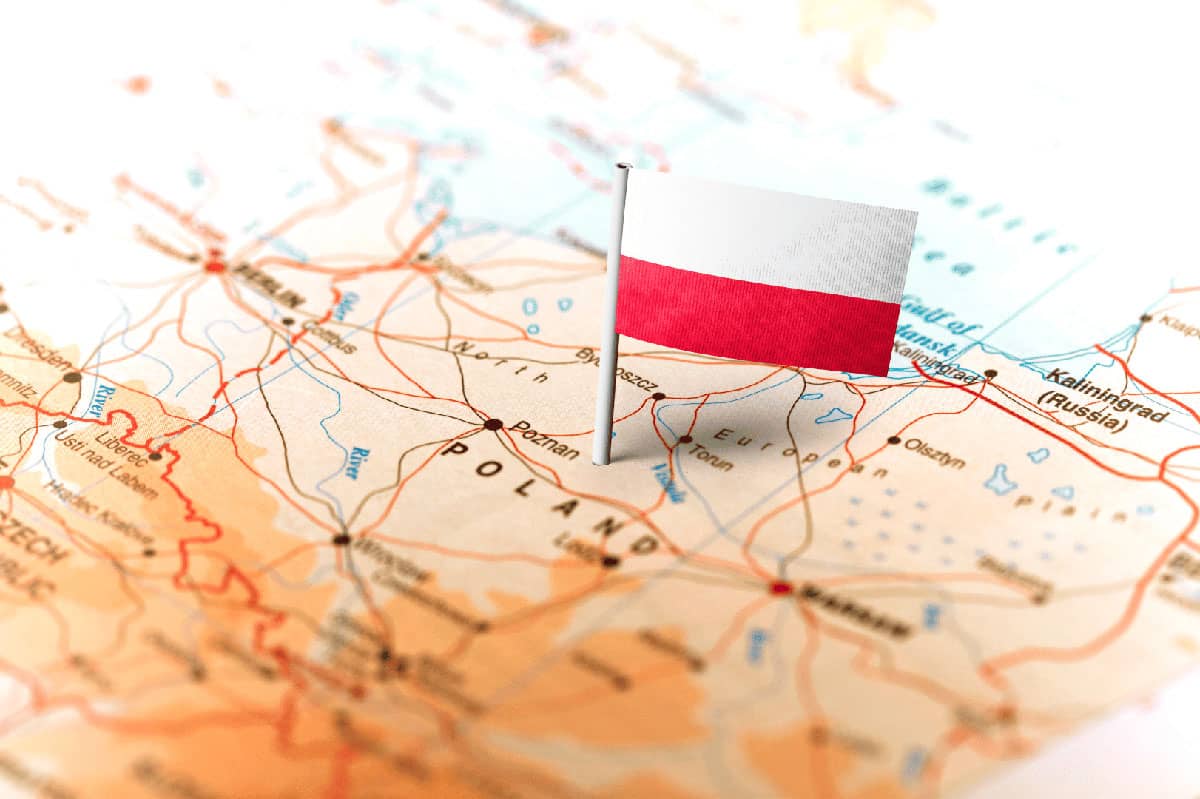Required Documents for Admission: Checklist for International Students
Applying to a university abroad is a big step, and every detail in your documents can make a difference. Poland offers affordable, high-quality European education, but to avoid issues during the admission process, it’s essential to collect and prepare your documents correctly. A translation mistake or missing proof of eligibility for further studies can lead to rejection.
AcademGo helps students from all around the world and around the world prepare a complete application package with no risk of refusals. We check compliance with university requirements, provide certified translations, complete the application forms, and submit your documents to the selected university — quickly, safely, and on time.
General Requirements for International Students
Regardless of your country of residence, you must meet the following basic requirements to apply to a Polish university:
1. A high school diploma (or a bachelor’s degree for master’s applicants)
2. A minimum average grade of 60% or higher (or the equivalent of 3.0 on a 5-point scale)
3. A valid international passport with at least 18 months of validity at the time of application
4. A language certificate (e.g., IELTS or an internal university test)
5. A completed university application form — submitted via online portal or email
6. Registration fee: from 50 to 200 euro, depending on the university
7. Translated documents in the language of instruction (English or Polish), certified by a sworn translator
Note: Most private universities in Poland do not require entrance exams — admission is based on documents only. Exceptions may apply to medical, law, and creative programs.

Full List of Documents for University Admission
To ensure your application is reviewed, you must prepare a full set of documents. Below is a list of papers required by almost every Polish university:
✔️ High school diploma or university degree (bachelor’s or master’s, depending on the program)
✔️ Transcript with a list of subjects and grades
✔️ Certified translation of all documents (including apostille or legalization if required) into English or Polish
✔️ Copy of your international passport (personal data page)
✔️ Motivation letter — in English or Polish, depending on the program
✔️ One passport-size photo (3.5 × 4.5 cm) (sometimes two)
✔️ Language certificate — IELTS, TOEFL, Cambridge, or internal university test results
✔️ Completed application form — in digital or printed format
✔️ Proof of registration fee payment (receipt or confirmation)
✔️ Recommendation letters — optional but encouraged, especially for master’s programs
AcademGo provides comprehensive support: we handle all translations, check that your application is complete, submit it to multiple universities, and follow up with admissions offices.
Language Requirements: Polish and English
Your choice of language of instruction determines which certificates or tests you need to submit. Polish universities offer programs in both English and Polish.
If you are applying for a program in English:You must demonstrate at least B2 level proficiency. Accepted international exams include:
- IELTS — minimum 6.0
- TOEFL iBT — minimum 79
- Cambridge English (FCE/CAE) — minimum level B2
- Duolingo English Test — minimum 105 (not accepted by all universities)
- PTE Academic — minimum 59
If you don’t have a certificate, many universities — such as Vistula or Lazarski — offer internal language tests that can be taken online. This is a convenient and affordable alternative to international exams.
If you are applying for a program in Polish:The required level is B1–B2, and for tuition-free public programs — C1. Accepted options include:
- Egzamin Certyfikatowy z Języka Polskiego jako Obcego (state certificate)
- Certificates from accredited language schools
- Internal university test results
To study for free at a public university, you must prove C1 level and pass a competitive selection process. You can find more details about language requirements in the article on our website.
Document Recognition: Apostille, Legalization, and Nostrification
If you graduated from a school or university outside the EU/OECD, your diploma must be officially recognized. This is done through apostille, legalization, or nostrification.
Nostrification is not required if:
✔️ Your documents are from EU, OECD, or EFTA countries (e.g. Turkey, USA, Canada, Ukraine)
✔️ You hold an IB (International Baccalaureate) or EB (European Baccalaureate) diploma
✔️ Poland has a bilateral agreement with your country recognizing educational documents
Nostrification is required if:
✔️ Your documents are from countries outside the list above (e.g., Belarus, Kazakhstan, Uzbekistan, India, Russia)
✔️ You are applying for restricted programs such as medicine, architecture, or law
The process includes:First, obtain an apostille (if your country is part of the Hague Convention) or complete document legalization via the Ministry of Foreign Affairs and the Polish consulate. Then, provide certified translations of all documents, including the diploma and apostille, into Polish.
The next step is to obtain a certificate of the right to continue education — this document confirms that your diploma allows you to enter a university in your home country. After that, you submit an application to the Kuratorium Oświaty (Regional Board of Education in Poland), which will review your case. Processing time is up to 30 calendar days.
AcademGo handles the nostrification process from start to finish — from translations to submission — so you receive the final result hassle-free.
Applying After High School
Good news: you can apply to a university in Poland right after high school. However, there are a few key points to consider.
What you need as a high school graduate:
✔️ High school diploma (certificate of full secondary education)
✔️ Certificate confirming your right to continue education (if not indicated on the diploma)
✔️ Certified translations of all documents
✔️ Language certificate (or an internal university test)
✔️ Apostille or legalization — for countries outside the EU/OECD
Most private universities in Poland do not require entrance exams — your diploma and a successful internal interview are usually enough.
For more details, see the article “Studying in Poland After High School.”
Additional Documents Depending on Your Situation
In some cases, universities may require additional documents beyond the standard list. These depend on the type of program, the applicant’s citizenship, and specific admission conditions.
✔️ Karta Polaka (Pole's card)
If you hold a Karta Polaka, you can apply to a public university for free, just like Polish citizens. You also won’t need a residence or work permit.
✔️ Medical Certificate
Required for admission to medical, sports, or arts programs. The format and list of tests depend on the university — we will clarify this for you.
✔️ CV (Resume)
Necessary for master’s or PhD programs, especially those in English. Make sure to present your experience, academic background, and motivation clearly.
✔️ Certificate of the Right to Continue Education
Mandatory for high school graduates and applicants from countries where the diploma does not confirm university eligibility. We’ll help you obtain this certificate or arrange it through the consulate.
✔️ Visa Documents
Applying for a Polish student visa requires a separate set of documents, including: university invitation, health insurance, financial proof, and more. We explain this in detail in a separate article.
✔️ Recommendation Letters
Often required for master’s programs, especially those in English or business fields. Preferably written by professors or employers.
AcademGo will check which of these documents you need and prepare everything according to your chosen university’s requirements.
Frequently Asked Questions








